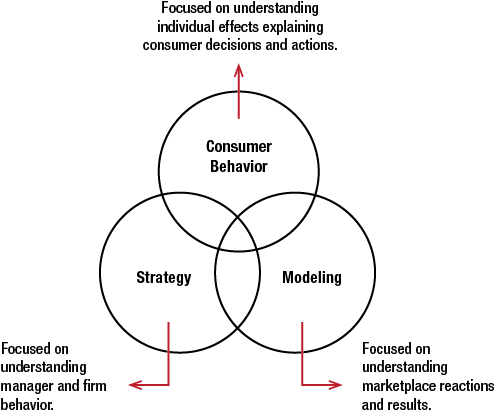Marketing is concerned with decisions that relate to a firm’s customers, competitors, and network of partners including channel members and promotion agencies. It focuses on how customers make choices and how companies design products, services, and programs to satisfy customer needs.
Given the breadth of marketing decisions, marketing scholars study a variety of marketing issues ranging from marketing strategy to product development, consumer decision making, and customer satisfaction. The field of marketing is interdisciplinary, drawing theories and methods from disciplines such as economics, psychology, sociology, and statistics, among others.


